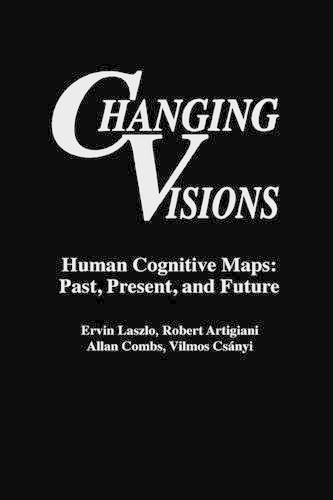
Changing Visions: Human Cognitive Maps: Past, Present, and Future
(Hardback)
Publishing Details
Changing Visions: Human Cognitive Maps: Past, Present, and Future
Bloomsbury Publishing PLC
Praeger Publishers Inc
28th May 1996
United States
Classifications
Tertiary Education
Non Fiction
Social, group or collective psychology
153
Physical Properties
Hardback
144
Description
The four authors of this book recognize that no one on the common human journey to the 21st century can pick the best route without consulting a mapthat is to say, an interconnected set of understandings about what in a given situation is important, what demands action and attention, and what does not. The problem, they contend, is that the picture of the world we each carry in our mind may not be a true mapping of the reality that surrounds us. This picture, the cognitive map, could always be sharper. The authors prompt us to become more conscious of our own cognitive map, and explain how it can be adapted to the exigencies of our changing world so that it can be better-used to guide our steps toward the 21st century. We all carry a picture of the world in our mind, but is that map an assuredly true layout of the reality that surrounds us If not, how can we use it to guide our steps toward the 21st century and beyond without creating shocks and surprises that impair our well-being and threaten our survival We shall not survive, either as individuals or as a species, if our maps fail to reflect accurately the nature of the world that surrounds us. The authors attempt, through reviewing the origins, development, and current changes in individual and social cognitive maps, to prompt readers to become more conscious of their own map, and hence be better able to adapt it to the exigencies of our changing world. The book ends with a vision of the global bio- and socio-sphere: the unified cognitive map which is emerging in laboratories and workshops of the new physics, the new biology, the new ecology, and the avant-garde branches of the social and historical sciences. But Changing Visions recognizes that these sciences alone cannot promote the formation of faithful maps of lived reality, and that religion, common sense, and even art can fill in and sharpen one's world-picture.
Author Bio
ERVIN LASZLO is Rector, European Academy for Evolutionary Management and Applied Studies, Scientific Advisor to the Director-General of UNESCO, and author or coauthor of 51 books. He was General Editor of Goals for Mankind, the 1977 report to the Club of Rome, of which he is a prominent member. His most recent book, The Choice (1994), was published by Adamantine (outside of North America only). ROBERT ARTIGIANI is in the Department of History at the U.S. Naval Academy, Annapolis, Maryland. He is a regular contributor to the journal World Futures. ALLAN COMBS is Professor of Psychology at the University of North Carolina at Asheville. VILMOS CSANYI is in the Department of Behaviourial Genetics at the University of Budapest, Hungary.
